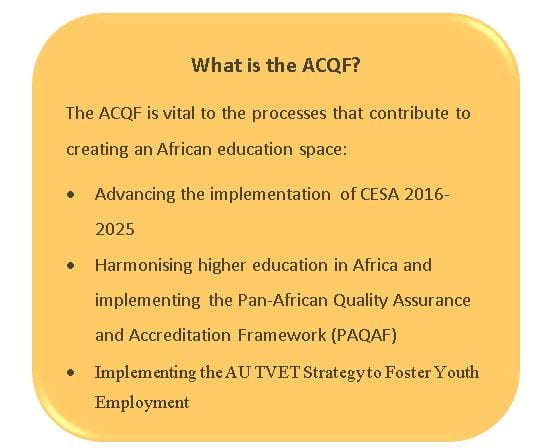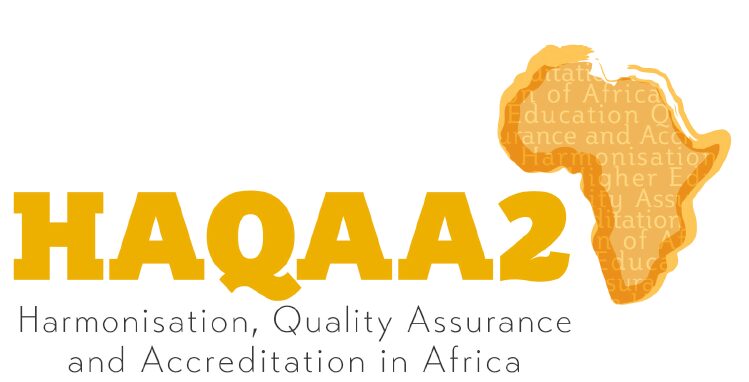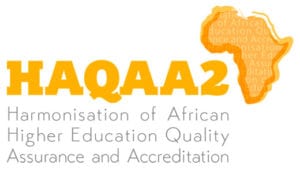
Eduarda Castel-Branco, has extensive professional experience in international cooperation, notably in the frame of the European Union external policies. An employee of the European Training Foundation since 2003 in, her portfolio of activities included analysis of labour market functioning in the countries of the Eastern Partnership, policy advise on qualifications frameworks and quality of qualifications, on validation of non-formal and informal learning and more recently advise on labour market information system and skills anticipation. In 2015-2016, Eduarda led the research and analysis of skills demand-supply and mismatch in two sectors at regional level in Morocco (Tanger region) and the development of the concept and action plan for the Labour Market Observatory in Azerbaijan. Eduarda is currently an Expert on Qualifications Frameworks for the African Continental Qualifications Framework – ACQF – project.

Can you tell the readers what work ETF is doing related to Quality Assurance in Higher Education?
E.C.B: ETF is a network of European Training partners and North African countries working on professional education and lifelong learning. ETF operates within key EU instruments and has a policy-driven approach to external assistance: The Instrument for Pre-Accession Assistance; the European Neighbourhood Policy; and the Development Co-operation Instrument.
The ETF mission is to help transitioning and developing countries harness the potential of their human capital through the reform of education, training and labour market systems, in the context of EU external relations policies. ETF activities cover, amongst others areas: skills and employment needs analysis, qualification systems and quality assurance. ETF works on learning, qualifications, foreign recognition of degrees, validation of qualification and policy analysis. It is developing tools and capacities and monitoring of implementation of policies and instruments.
ETF has worked on QA for several years, however this is the first time that ETF is involved in the Sub-Saharan Africa continent.
How does ETF come into play with ACQF?
E.C.B: ETF has over 15 years’ experience with qualification frameworks (QF). It has supported DEVCO and the EU Delegation to the AUC. ETF also supports the Directorate General for Neighbourhood and Enlargement Negotiations on the topic of QFs. The ETF regulation of 2008 introduces potential flexibility in our geographical scope. Hence, the European Commission can make use of ETFs’ expertise outside our current partner countries, in response to specific proposals. This is where ACQF comes in, given that EU is committed to the Africa-EU Partnership, in which skills and harmonisation frameworks are priorities.
What is ACQF and how timely is it for the African continent?
E.C.B: Education, skills and qualifications are at the heart of African renaissance. Therefore, the African Continental Qualifications Framework (ACQF) is a vital policy underpinned by the key strategic commitments and policies of the African Union:
- Agenda 2063
- African Continental Free Trade Area
- Protocol on Free Movement of Persons, Right of Residence and Right of Establishment
- Continental Education Strategy for Africa (CESA 16-25)
- Sectoral development strategies, such as African Tourism Strategic Framework (2019-2028).
Development of the ACQF was officially launched at the inaugural workshop held at AUC headquarters on 2-3 September, 2019. This process is led by the African Union Commission (AUC), working in partnership with the European Union, GIZ and the European Training Foundation (ETF). The process is participative, based on analysis and evidence, and builds on African and global experience. By mid-2022 the ACQF policy and technical document, supported by an Action Plan, will be submitted for adoption by the AU.
The ACQF vision is to:
- Enhance comparability, quality and transparency of qualifications from all sub-sectors and levels of education and training and support people’s lifelong learning outcomes;
- Facilitate recognition of diplomas and certificates;
- Work in complementarity with national and regional qualifications frameworks, and support the creation of a common African education space;
- Promote cooperation and alignment between qualifications frameworks (national, regional) in Africa and worldwide.
The political ideology of the AUC and the operationalisation of the African Free Trade Area calls for a common understanding of skills and competences. The ACQF seeks to provide a framework of trust and commonly agreed learning and training outcomes. It aims to supplement the engines of integration, mutual trust and recognition, quality relevance and credibility. Additionally, it should contribute to ease of lifelong learning, i.e skills matching, learner mobility/transparency.
Is there a convergence between ACQF and HAQAA? If so, can you expound on it? And how can it be enhanced?
E.C.B: The mapping study scheduled to end in September aims to produce a comparison of the state of play of the different blocks of Africa and to create an evidence base – what are the differences, similarities, levels, instruments, outreach and impact on variations.
The ACQF mapping study will provide a comprehensive and updated analysis of where Africa stands in respect to qualifications frameworks development, implementation and renewal. The results of the mapping study report will fill a critical information gap and contribute to evidence-based engineering of the ACQF.
The experience so far with the Mapping study has shown a good uptake of ASG-QA, which is one of the outputs of HAQAA1. A case in point is Angola that is in the process of developing a QA Agency and QA Framework and are in the process of contextualising of the ASG-QA to that effect.
It is also important to note that:
- QF, whether national or regional, interconnects with QA
- QF systematises different sectors of education and employment
- QF is used to develop various aspects of harmonised education
- A continental QF is one aspect of PAQAF, as are the ASG-QA
Therefore, there is need for the ACQF initiative and the HAQAA initiative to share information and jointly promote workshops, discussion forums etc. The ACQF is an enrichment for HAQAA as it caters for all levels of learning. The ACQF looks at all levels of education and Vocational Education and Training (VET), which also need to be considered in a QA system.
In the future, there is need to explore how these instruments can become operational and sustainable. It is proposed that they should be accommodated under one governance structure. This in itself requires resources, political will and a clear understanding of the next steps and milestones.
What are the next steps in the ACQF development? And what is your message to the Higher Education stakeholders in Africa?
E.C.B: The next phase begins in October – Feasibility study – which will look at the national frameworks. As we carry on with this project, the question in our minds is “will the ACQF be a catalyst for national development?”
It is also refreshing that we are also learning from experiences of HAQAA especially in terms of how the processes can function.
Many countries have high expectations of ACQF: Therefore, there is need to link the conversation between different sectors given that diversity is not only among countries but also within countries and regions. For this reason, ACQF aims to ease the understanding of what a qualification framework is and find a common language.
Is there anything else you would like to share?
- Be proud of the efforts that countries have been put in education: there is good capacity and commitment to make further strides. Education is critical to the continents’ young population with emphasis on skills and competences. And the youth have shown good practice, commitment to learn and search for solutions.
- Higher Education stakeholders should look at innovative/African solutions which make connections to national development. The leading questions are ‘How are we managing with the challenges, be it language, orientation, social conditions?’ How do the national, regional and continental development agendas factor into the frameworks?
- Join forces, as there’s no country that has the solution. Each country can learn from the other. Additionally, there is need to have proper implementation of education policies especially with the current global pandemic (Covid-19) which will require massive efforts to recover. It is a time for solidarity and a lot of compassion.
Personally, it has been a dream to work on this project with people who are committed and supportive. It is also an opportunity to give back to the continent and my country of birth, Mozambique.
The string of interconnected projects can mobilize stakeholders and increase the rate of sharing and range of dissemination of methodologies and instruments. The end result is applicability of these instruments that ensure countries are engaged and commitment to implementation.

